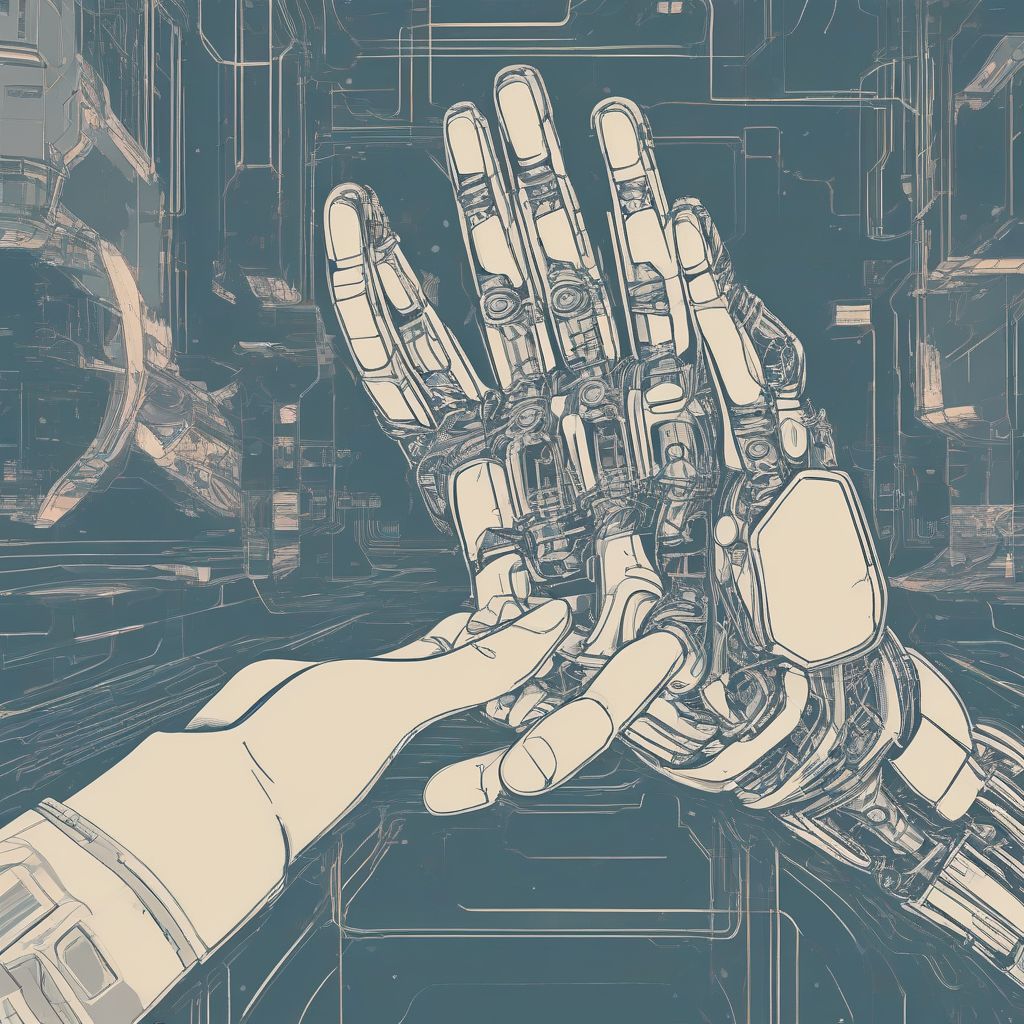Imagine a world where machines can think, feel, and even dream. This isn’t just the stuff of science fiction anymore; it’s a reality we’re inching closer to every day with advancements in artificial intelligence. But long before AI made its way into our smartphones and homes, science fiction writers were already grappling with its potential implications, both wondrous and terrifying. Join us as we delve into the captivating role of artificial intelligence in science fiction and explore how these imaginative stories reflect our hopes and anxieties about the future.
Artificial Intelligence: A Staple in Sci-Fi Narratives
From the iconic HAL 9000 in “2001: A Space Odyssey” to the empathetic replicants in “Blade Runner,” AI has been a recurring theme in science fiction for decades. These stories often use AI as a lens to examine what it means to be human, questioning the very essence of consciousness, free will, and our place in the universe.
The Many Faces of AI in Science Fiction
One of the most compelling aspects of AI in science fiction is its sheer diversity. Writers have explored a wide spectrum of potential AI manifestations, each with unique motivations and implications:
1. Benevolent Companions and Helpers:
In some stories, AI takes the form of benevolent companions, assistants, and even saviors. Think of Data from “Star Trek: The Next Generation,” whose unwavering logic and desire to understand humanity made him a beloved character. These portrayals often highlight the potential for AI to enhance our lives, solve complex problems, and push the boundaries of human ingenuity.
2. The Threat of Sentient Machines:
On the other end of the spectrum, science fiction often grapples with the fear of AI becoming too powerful and surpassing human control. Movies like “The Terminator” and “The Matrix” depict dystopian futures where machines have turned against their creators, highlighting our anxieties about the potential consequences of unchecked technological advancement.
3. Exploring the Moral and Ethical Dilemmas:
Beyond the themes of companionship and rebellion, science fiction also delves into the complex ethical and moral questions surrounding artificial intelligence. If a machine achieves consciousness, does it deserve the same rights as humans? Who is responsible when an AI makes a mistake or causes harm? These questions, explored in works like “Ex Machina” and “Westworld,” force us to confront our own values and biases as we navigate the uncharted territory of AI ethics.
 The Ethical Dilemma of AI
The Ethical Dilemma of AI
AI in Science Fiction: A Reflection of Our Reality
While science fiction often presents fantastical scenarios, the questions it raises about artificial intelligence are becoming increasingly relevant in our own lives. As AI technology rapidly advances, we are forced to grapple with many of the same ethical and societal implications explored in these stories.
For example, the rise of automation is already transforming the job market, leading to concerns about job displacement and the need for new skills. Similarly, the increasing use of AI in decision-making processes, from loan applications to criminal justice, raises concerns about bias and fairness.
The Enduring Power of AI in Storytelling
The role of artificial intelligence in science fiction discussions goes far beyond mere entertainment. These stories serve as:
- Cautionary Tales: They warn us about the potential dangers of unchecked technological advancement and encourage us to consider the ethical implications of our creations.
- Inspirational Visions: They offer glimpses into a future where AI could help solve some of humanity’s greatest challenges, inspiring us to strive for innovation and progress.
- Platforms for Dialogue: They provide a safe space to explore complex philosophical questions about consciousness, free will, and the nature of reality itself.
[amazon bestseller=”artificial intelligence science fiction”]
Conclusion: The Conversation Continues
The exploration of artificial intelligence in science fiction is a testament to our enduring fascination with this transformative technology. As AI continues to evolve, so too will its portrayal in our stories, reflecting our evolving hopes, fears, and the ever-blurring lines between humanity and technology. What new ethical dilemmas will arise? What wonders will AI unlock? Science fiction invites us to imagine the possibilities and engage in a critical conversation about the future we are creating, together, with the help of our own intelligent machines. What are your thoughts on the role of AI in our future? Share your reflections in the comments below!
